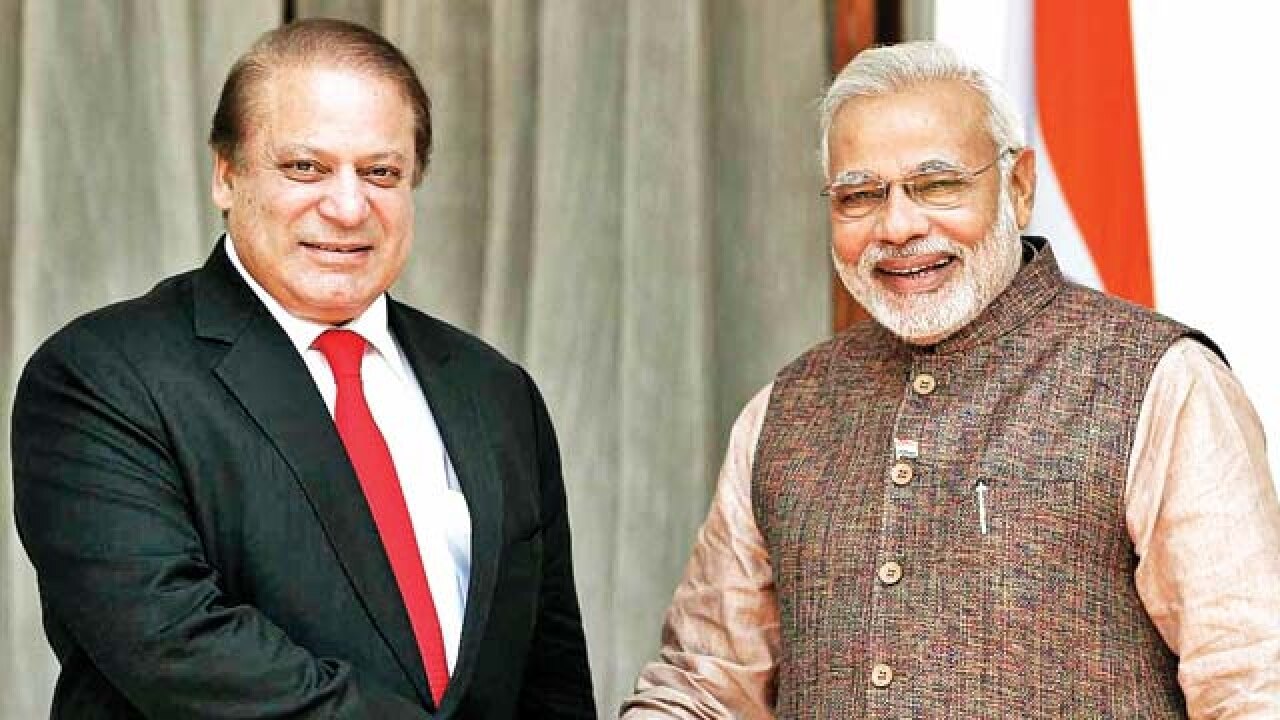
In the wake of Prime Minister Narendra Modi leading his party to an impressive victory in the Uttar Pradesh assembly elections, revival of the long-stalled talks with Pakistan seems a distinct possibility. Contrary to the impression created by the hard line and hostile rhetoric of recent months, straws in the wind suggest that both sides may have been working behind the scenes for resuming the dialogue at an early date. Credible observers, who have been tracking the shifts and nuances in the troubled ties, say that there are clear indications of back-channel communications between trusted confidants of the prime ministers of India and Pakistan. The Government of India’s high-pitched campaign for the “international isolation of Pakistan” as the region’s fount of terrorism, the political chest-thumping over “surgical strikes” – which was also squeezed for electoral mileage in Uttar Pradesh – and the short-lived campaign for human rights in Balochistan, were calculated to put pressure on Pakistan. GoI may find satisfaction in that these have paid off, to some extent.
The arrest, on January 30, of Jamaat-ud-Dawah (JuD) chief Hafiz Saeed – who is the wanted mastermind of the 2008 Mumbai attack with a US bounty of $10 million on his head – was the first of a series of steps taken by Pak PM Nawaz Sharif’s government to blunt the edge of New Delhi’s campaign. Sharif matched the military action taken against terrorists with some deft political and diplomatic moves aimed at earning brownie points from the international community, placating New Delhi and paving the way for resumption of talks with India. The most important of these was Abdul Basit, Pakistan’s envoy to India, being bypassed for the top diplomatic job of foreign secretary. Instead, Sharif handed the plum post to Tehmina Janjua, who was third in line. Basit was made to pay for holding talks -- which were not “authorized” by the political leadership in Islamabad -- with the Hurriyat leaders from Jammu & Kashmir. These unauthorised talks sabotaged the meeting scheduled between the national security advisors (NSAs) and foreign secretaries of the two countries.In the process, Sharif also asserted the primacy of the political establishment over the Army and the ISI, for Basit was a favourite of the military. Pakistan army chief Gen Qamar Javed Bajwa, unlike his predecessor, declined to intervene in the foreign secretary’s appointment. Gen Bajwa has not shown himself to be politically ambitious. Instead, he is said to be repeatedly emphasising that a peaceful Line of Control (LoC) is necessary for the government to stay focused on Afghanistan and wipe out terror hubs at home. In this, he is said to be supported by the new ISI chief Lt Gen Naveed Mukhtar, who enjoys a close rapport with PM Sharif.
Sharif’s strengthened position should suit GoI which, unlike the leaders of western powers and China, has been averse -- if not opposed -- to dealing with Pakistan’s military leadership. That may be the reason that New Delhi backed down on certain other issues, such as the Indus Waters Treaty (IWT). After all the noise over “abrogation” of the IWT and thundering rhetoric that “blood and water cannot flow together”, the task force set up to review the treaty has not held a single meeting. Clearly, GoI is not interested in pushing Sharif into a corner. Moreover, voices in the strategic affairs community and especially those in “think tanks” close to the GoI and NSA Ajit Doval have been reportedly asked to tone down the rhetoric against Pakistan.
The BJP’s ally in J&K, chief minister Mehbooba Mufti, has been rooting for revival of talks with Pakistan from the day it assumed office. In her one-to-one meeting with Modi a few months ago, Mehbooba pressed Modi to hasten with the dialogue. She is reported to have impressed on the PM the inextricable link between better ties with Pakistan and better law and order in J&K. Politically, the UP election was the biggest test and Modi has cleared it. Unlike in the past -- when the hidden hand of the RSS and hawks in the establishment seized upon anything handy to scuttle a dialogue with Pakistan -- post-UP, Modi is in a stronger position to take the plunge and he could use a few leaves from Vajpayee’s book on mending ties with Pakistan.
(The author is an independent political and foreign affairs commentator based in New Delhi.)